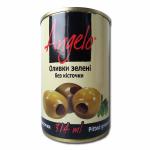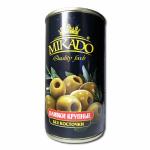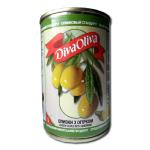
Other names for the additive (synonyms)
General Information
Ascorbic acid (food additive E300) is an organic compound related to glucose. The additive is more commonly known as vitamin C. It plays an important role in the human diet, supporting the normal functioning of connective and bone tissue. In addition, ascorbic acid acts as an antioxidant, as well as a reducing agent and coenzyme in a number of metabolic processes.
Ascorbic acid is the chemical name for the substance with the formula C6H8O6. Vitamin C is the biological name commonly used in the context of nutrition and medicine. In dietary supplements or food products, "vitamin C" may refer to mixtures containing not only pure ascorbic acid, but also its salts (such as sodium ascorbate or calcium ascorbate), as well as accompanying bioactive substances (such as bioflavonoids in natural citrus extracts).
Pure vitamin C was isolated in 1928, and in 1932, it was confirmed that its deficiency causes scurvy. Hence the name "ascorbic acid" — from A ("no") and scorbutus ("scurvy").
Ascorbic acid is abundant in citrus fruits, kiwifruit, rose hips, red peppers, blackcurrants, onions, tomatoes, and leafy vegetables. In nature, it is synthesized by plants and most animals, except primates, who must obtain it through food.
In industry, ascorbic acid is synthesized from glucose, which in turn is derived from plant starch (most commonly corn). At one stage of the process, microbial oxidation using Acetobacter suboxydans is applied. Modern methods of producing additive E300 also involve genetically modified microorganisms. The final product is pure ascorbic acid identical to the natural one.
Additive E300 is a white or pale yellow crystalline powder, easily soluble in water and alcohol, with a sour taste.
In the food industry, additive E300 is used as an antioxidant, acidity regulator, and chelating agent. In some products, especially energy drinks, it is added specifically as vitamin C.
Effects on the Body
Benefits of additive E300
Ascorbic acid participates in the conversion of cholesterol to bile acids, the formation of collagen, serotonin from tryptophan, catecholamines, and the synthesis of corticosteroids. Additive E300 is a powerful antioxidant, protecting lipoproteins from oxidation. It stimulates interferon production, supports immune modulation, and prevents the conversion of glucose to sorbitol. It also promotes the absorption of divalent iron by converting it into the trivalent form.
The daily requirement for vitamin C in adults is at least 90 mg, with recommended intakes of 100 mg during pregnancy and 120 mg during breastfeeding. For children, the recommended range is 30 to 90 mg per day.
In 2015, the EFSA Panel on Food Additives and Nutrient Sources added to Food published a scientific opinion on additives E300, E301 and E302. It stated that there are no safety concerns regarding the use of these additives and no need to establish an Acceptable Daily Intake (ADI) for ascorbic acid and its derivatives.
Risks of additive E300
Excessive intake of vitamin C may cause skin irritation, diarrhea, allergic reactions, and urinary tract irritation. However, the amount of additive E300 found in food is usually well below the recommended dietary intake.
Uses
In the food industry, ascorbic acid is used primarily as an antioxidant — additive E300 prevents oxidation and discoloration of products.
Additive E300 is most commonly used in meat and fish products, canned foods, confectionery, and energy drinks.
In addition to food use, additive E300 is also used in pharmaceuticals as an essential vitamin C supplement.
Legal Status
Additive E300 is permitted for use in food production in the European Union, the United States, Ukraine, and many other countries.



